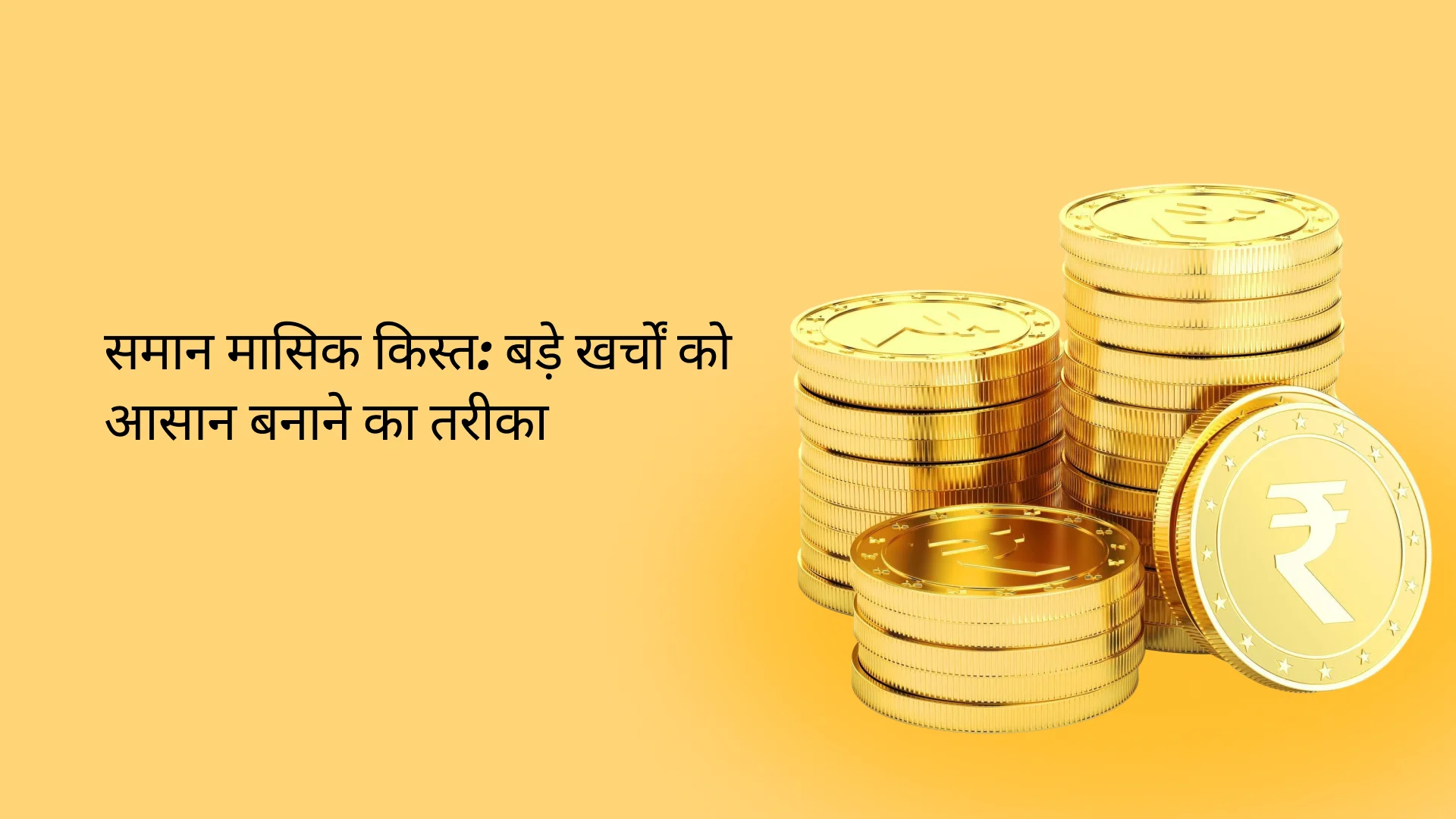10 Simple Ways to Secure Emergency Funds

As per a survey, 75% of Indians lack emergency savings and could fall behind on their EMIs in case of a layoff. An emergency fund is an important part of saving which should ideally equal 3 to 6 months of one’s salary. If you are thinking of how to get emergency cash, this article will help you on how you can build an emergency fund and ways to secure it in case of a financial pinch.
Table of Contents
ToggleTop 10 Simple Ways to Secure Emergency Funds
Below are 10 simple ways to secure emergency money and find out how to get emergency cash when you need it most.
Personal Loans
For those in need of immediate financial attention like hefty medical bills or urgent personal expenses, a quick and effective way to go about it is by taking a personal loan. There are numerous choices of personal loans. Zype offers instant online personal loans up to 5 lakhs for those in need and has a hassle-free borrowing process, allowing you to secure funds without lengthy paperwork or complicated processes.
Savings Account
If you need emergency money, one can get it from their savings account. But ensure to not spend all of your savings. It is important to keep some amount aside for other obligations such as paying utility bills and other regular monthly expenses. However, if the expense is unavoidable, like a medical expense, it is preferable to use savings in such emergency cases.
Borrow from Friends or Family
Reaching out to one’s extended family or friends for financial help is another good option. If you are in need of instant cash loans, borrowing can be a solid option as it gives quick access to emergency loan. They might be willing to lend the money, however it is important to ensure transparency in repaying the loan. Address a tentative payback time and interest on the personal loan taken. This will help you to maintain the personal relationship without any awkwardness down the road.
Credit Cards
Credit card can be another option in emergency expenses. If is an emergency expense like a medical bill or urgent car repair, you can pay the bill through credit card. However, ensure you don’t utilize the entire credit limit, as it can affect your credit score. Credit utilization of 30% is ideal but one can utilize upto 50% without affecting their credit score.
Sell Unused Items
If you have any unused items in good condition, why not sell them? There are a lot of online platforms available today, where one can sell such items and get a good deal on them. Additionally, this declutters one’s space while earning you some cash.
Cash Advances
One can get cash advance on a credit card. It works just like a debit card. One can withdraw cash on a credit card below the credit limit. However, usually you can expect 2% to 5% charge on the withdrawn amount. Additionally, you may have to pay the additional interest amount from the date of withdrawal till the repayment date which varies depending on the credit card. This option should only be considered when all other options are exhausted. Defaulting on cash advances could potentially affect one’s finances and hurt their credit score.
Side Gigs or Freelance Work
You can also try freelancing to earn some cash. Freelancing platforms online connect you with potential clients making it easy to get work. The best part? It offers the flexibility of working as per one’s schedule. It is a good way to earn extra cash when in a financial pinch.
Home Equity Loans
If you need to cover big expenses, you can consider taking a home equity loan, which means your house serves as collateral. This type of loan is easy to qualify for since it is secured by collateral and has a fixed interest rate. This can also help you cover big emergency expenses and manage your finances better, just by paying a certain fixed amount as a monthly EMI.
Retirement Account Loans
Retired individuals or their co-applicants can consider taking a loan from their retirement account, which is also known as taking a loan against a pension. One can avail of a personal loan from a bank if they have a pension account in that particular bank. Individuals drawing pensions might need some extra funds during emergency events and can avail of a loan from their pension account. However, this option is specifically designed for retired individuals or their co-applicants.
Community Resources
One can also contact their local trusts and community organisations for financial aid. There are a lot of NGOs, relief funds and crowdfunding platforms that are available to help people to access funds in need of financial support. These resources can work as a lifeline when you’re facing a tough financial situation and need an urgent loan.
Importance of Building an Emergency Fund
Emergency fund is an essential step towards building financial stability. If you are having a thought on how to get money in an emergency situation, there are numerous methods one can follow and maintain the same. Having a separate fund helps one to be stress-free during unexpected expenses. In case of a medical expense, home repairs or a job loss, one can rely on emergency funds to navigate the tough times. If there is no emergency money, such expenses can eat into one’s savings and impact their financial stability.
One can resort to taking a personal loan for financial relief. However, loans have interest rates and repayment structures which need to be followed. Defaulting on them leads to penalties that can push one to further financial turmoil. Emergency funds in such cases provide a cushion to diffuse the impact.
Tips for Managing Emergency Funds
If you have not yet built an emergency fund, you can begin today. Here are a few tips on how to build emergency cash and manage it :
Start with small savings: After paying the monthly expenses like bills, groceries, transport, and EMIs, it can seem overwhelming to contribute towards an emergency fund. Still, one can start with a small amount towards building their emergency fund.
Keep a separate savings account: One can secure emergency funds by contributing an amount from one’s disposable income to a separate account. If one has a salary of ₹40,000 an emergency fund of ₹1,20,000 or ₹2,40,000 should be their goal.
Automate Savings: You may automate a part of your salary contributing towards an emergency fund. This ensures you save on a consistent basis.
Consider having an Insurance: Having a medical and life insurance policy will cover emergencies and will safeguard your finances. Review and choose a policy in terms of coverage, affordability and that has a high settlement ratio.
Replenish Funds: If you access the amount from your emergency funds, replenish the funds soon enough. Ensure you add in enough funds later to maintain the original emergency fund amount.
Also Read: How to Build an Emergency Fund?
Conclusion
Building an emergency fund is essential to financial security. One can take small and consistent steps towards contributing to their emergency fund. This will ensure a safety net in case of unexpected events like a medical expense, job loss, travel or home repairs. Incase, one falls short of emergency funds, they may explore other options listed in this article. They provide financial aid in a crisis and help you to manage your finances in a better way.
Frequently Asked Questions
How Can I Start Building An Emergency Fund?
To build an emergency fund, start small and contribute consistently. Keep a goal of building a fund equivalent to 3 or 6 months of your salary.
What Are The Best Ways To Secure Emergency Funds Quickly?
The best way to secure emergency funds is from one’s savings account, taking a personal loan or an emergency loan online, and getting help from family and friends.
Are Personal Loans A Good Option For Emergency Funds?
It depends on your emergency amount. If an emergency amount depletes all your savings, it is a good option to consider a personal loan. However, the repayment terms and interest rates should be favourable.
Can I Use Credit Cards For Emergency Funds?
Credit cards can provide short-term liquidity in case of emergency but it is advisable to not rely on them completely and build an emergency fund.
What Are The Risks Of Borrowing From Friends Or Family For Emergencies?
If one fails to pay back the borrowed amount, it can strain the relationship with that friend or family member. It can additionally foster resentment within them if loan repayment time and interest rates are not properly discussed beforehand.
How Can Selling Unused Items Help In Securing Emergency Funds?
Selling unused items can be a good option as it will give you some extra cash by selling those items in an online selling platform which will help you build your emergency fund.
What Should I Consider Before Taking A Cash Advance For Emergency Funds?
Before taking a cash advance, consider the interest rates, repayment terms and any additional charges applicable.
What Are Community Resources For Emergency Funds?
Community resources for emergency funds include a few government schemes, crowdfunding platforms, charitable trusts and local panchayats that offer financial relief.
YOU MAY ALSO LIKE

Search by posts
Recent post
-
 समान मासिक किस्त: आपकी वित्तीय खर्चों को आसान बनाने वाला तरीका
समान मासिक किस्त: आपकी वित्तीय खर्चों को आसान बनाने वाला तरीका
-
 Apply for 50000 Rupees Loan Urgently: Get Disbursed in Few Minutes
Apply for 50000 Rupees Loan Urgently: Get Disbursed in Few Minutes
-
 How to get Instant Loan on Aadhaar Card without Salary Slip
How to get Instant Loan on Aadhaar Card without Salary Slip
-
 How to Apply for a Rs. 25,000 Loan on an Aadhaar Card?
How to Apply for a Rs. 25,000 Loan on an Aadhaar Card?
-
 How to Get ₹30,000 loan without income proof: Quick Ways
How to Get ₹30,000 loan without income proof: Quick Ways
Categories
- Blog (6)
- Credit History (36)
- Credit Line (7)
- Festive (4)
- Finance (15)
- Mutual Fund (19)
- Personal Loan (275)
- Tax (8)
- Zype (4)













